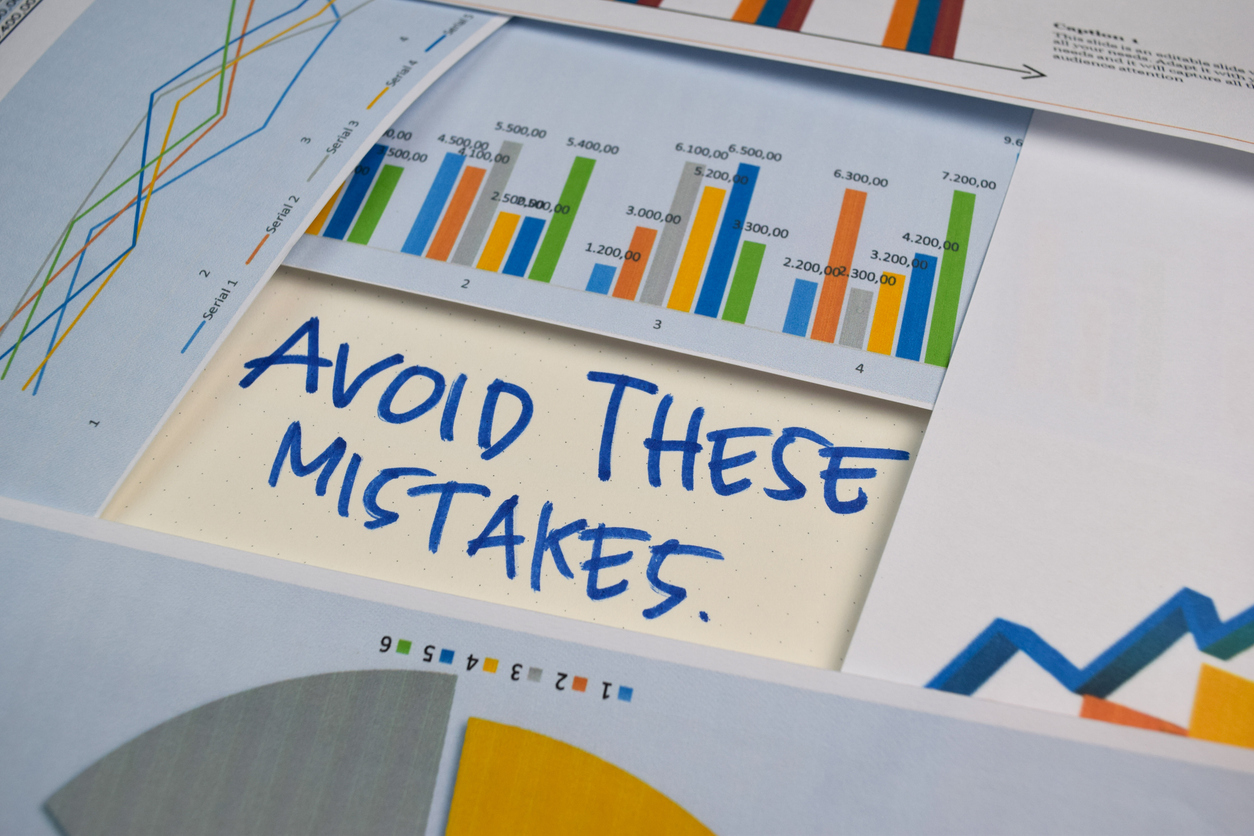
Your 30s are a pivotal time for building financial stability and setting the foundation for long-term wealth. With career growth, family planning, and homeownership on the horizon, it’s essential to avoid common financial pitfalls that can derail your progress. By steering clear of these money mistakes, you can set yourself up for financial success well into the future. Here are the top money mistakes to avoid in your 30s.
1. Not Prioritizing Retirement Savings
One of the biggest financial mistakes people make in their 30s is not prioritizing retirement savings. It’s easy to put off retirement planning when there are more immediate financial goals, like buying a home or raising children. However, failing to invest in your retirement early can result in playing catch-up later, and you’ll miss out on the power of compound interest.
Why it’s a mistake:
- The earlier you start saving for retirement, the more time your money has to grow. Compound interest means your money earns interest not just on your contributions but also on the interest itself, leading to exponential growth over time.
What to do instead:
- Contribute to a 401(k) or IRA as early as possible, aiming to save at least 15% of your income for retirement. If your employer offers a 401(k) match, take full advantage of it—this is free money.
Pro tip:
- Consider automating your retirement contributions so that a percentage of your paycheck goes directly into your retirement account, ensuring consistency.
2. Taking on Too Much Debt
Your 30s are often a time when major life events, like buying a house or starting a family, lead to taking on more debt. While some debt, like a mortgage, is considered “good debt,” other types, like high-interest credit card debt or personal loans, can weigh you down and hinder your financial growth.
Why it’s a mistake:
- Carrying high-interest debt can drain your finances, making it harder to save, invest, or cover essential expenses. It can also damage your credit score, limiting your future borrowing options.
What to do instead:
- Be mindful of how much debt you take on and avoid unnecessary loans. Prioritize paying off high-interest debt quickly and consider using the debt snowball or avalanche methods to tackle multiple balances.
Pro tip:
- If you need to use credit cards, pay off the balance in full each month to avoid interest charges and use credit responsibly.
3. Neglecting an Emergency Fund
An emergency fund is your financial safety net, covering unexpected expenses like medical bills, car repairs, or job loss. Neglecting to build an emergency fund can force you to rely on credit cards or loans in times of crisis, leading to increased debt.
Why it’s a mistake:
- Without an emergency fund, you’re vulnerable to financial emergencies that can derail your savings and increase your debt burden.
What to do instead:
- Aim to save at least three to six months’ worth of living expenses in an easily accessible savings account. This ensures you have a cushion in case of unexpected events.
Pro tip:
- Set up automatic transfers from your checking account to a dedicated savings account to grow your emergency fund consistently.
4. Not Having a Budget
Many people in their 30s forego budgeting, thinking they can manage their finances without a clear plan. However, not having a budget makes it easy to overspend, especially with larger expenses like housing, childcare, or travel.
Why it’s a mistake:
- Without a budget, it’s difficult to track where your money is going, which can lead to overspending and missed savings opportunities.
What to do instead:
- Create a monthly budget that accounts for your income, expenses, and financial goals. Use budgeting tools like Mint or YNAB to track your spending and stay on top of your finances.
Pro tip:
- Consider the 50/30/20 rule: Allocate 50% of your income to needs, 30% to wants, and 20% to savings and debt repayment.
5. Delaying Homeownership Without a Plan
While not everyone needs to buy a home in their 30s, delaying homeownership without a clear financial plan can be a missed opportunity to build equity. Renting indefinitely might work for some, but if homeownership is part of your long-term goals, it’s important to have a strategy for saving and preparing for that purchase.
Why it’s a mistake:
- Renting doesn’t allow you to build equity in a property, and rising rent costs can make it harder to save for a down payment over time.
What to do instead:
- If homeownership is a goal, start saving for a down payment early. Look into first-time homebuyer programs, and make sure your credit score is in good shape for mortgage approval.
Pro tip:
- Research different loan options, like FHA loans, which may require a lower down payment, to help you get into a home sooner.
6. Overextending on a Mortgage
Buying a home is a major milestone, but purchasing more house than you can afford can lead to financial strain. It’s easy to get caught up in the excitement of homeownership and stretch your budget to buy your dream home, but this can leave you “house poor” and struggling to cover other expenses.
Why it’s a mistake:
- Overextending on a mortgage can leave you with little room in your budget for savings, investments, or discretionary spending.
What to do instead:
- Stick to a home budget that allows you to comfortably afford your mortgage payments, property taxes, maintenance, and other costs, while still having enough left for savings and other financial goals.
Pro tip:
- Use the rule of thumb that your housing costs (including mortgage, insurance, and taxes) should not exceed 30% of your gross monthly income.
7. Neglecting Insurance Needs
Your 30s often come with increased responsibilities, such as starting a family or buying a home, making it essential to review your insurance coverage. Many people neglect key insurance policies, leaving themselves vulnerable to financial hardship in case of illness, accidents, or natural disasters.
Why it’s a mistake:
- Inadequate insurance coverage can result in out-of-pocket costs that can devastate your finances in the event of an emergency.
What to do instead:
- Ensure you have adequate health, life, and home or renters insurance. If you have dependents, life insurance becomes crucial to ensure their financial security.
Pro tip:
- Consider disability insurance to protect your income in case you’re unable to work due to illness or injury.
8. Ignoring Investment Opportunities
Your 30s are a prime time to grow your wealth through investing. However, many people avoid investing out of fear or a lack of understanding, missing out on the long-term benefits of market growth.
Why it’s a mistake:
- Failing to invest means missing out on the opportunity to grow your money over time. Simply saving in a low-interest account may not keep up with inflation, limiting your purchasing power.
What to do instead:
- Start investing in the stock market through retirement accounts like a 401(k) or IRA, or through a brokerage account. Diversify your investments across different asset classes to reduce risk.
Pro tip:
- Consider using robo-advisors like Betterment or Wealthfront to help you manage your investments if you’re new to the market.
9. Not Having a Will or Estate Plan
Estate planning isn’t just for the wealthy. If you have children, own a home, or have significant assets, it’s essential to have a will or estate plan in place. Without one, your assets could be tied up in probate, and your wishes may not be followed.
Why it’s a mistake:
- Without a will, your assets may not be distributed according to your wishes, and your loved ones may face legal challenges in accessing your estate.
What to do instead:
- Draft a will, and update it as your life circumstances change. Consider creating other estate planning documents, like a durable power of attorney and healthcare directive.
Pro tip:
- Work with an estate planning attorney to ensure your will is legally sound and covers all your assets and beneficiaries.
Avoiding these common money mistakes in your 30s can set the stage for long-term financial stability and success. By prioritizing retirement savings, managing debt responsibly, and planning for major life events like homeownership and family, you can create a solid financial foundation. With the right strategies in place, your 30s can be a decade of financial growth and empowerment.







